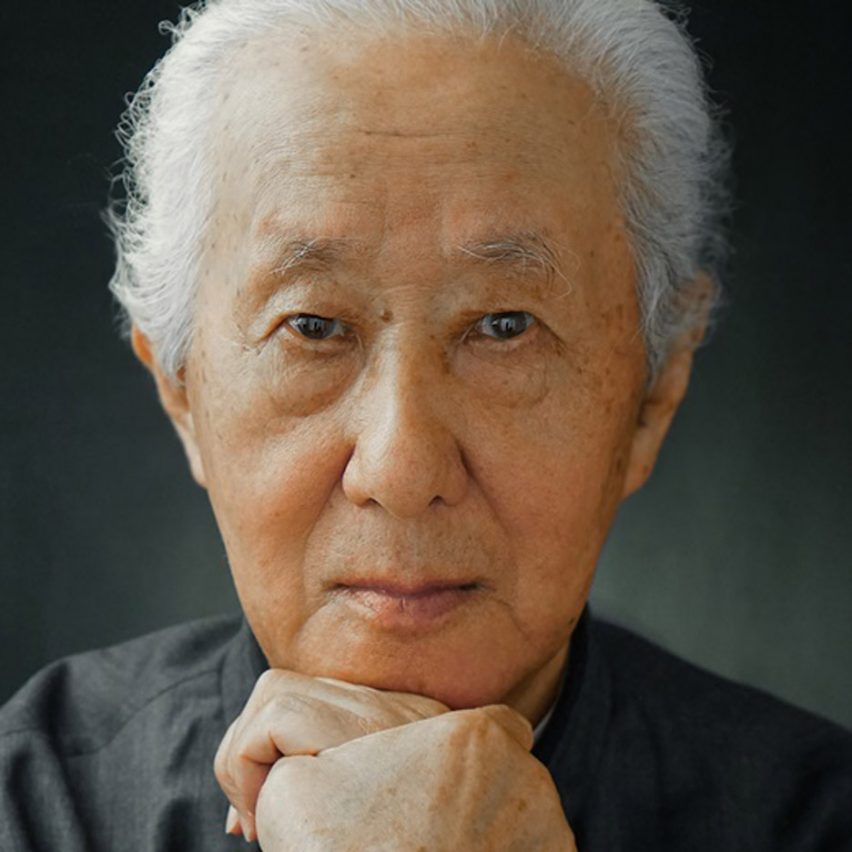
Japanese architect Arata Isozaki, who was one of the country's most influential post-war architects, has passed away aged 91.
Isozaki, who was responsible for over 100 buildings in his six-decade-long career, died yesterday at his home in Okinawa.

Isozaki was known both for his early Japanese brutalism, including the Ōita Prefectural Library, and later international modernist buildings like the Museum of Contemporary Art in Los Angeles.
He won numerous awards including the Pritzker Architecture Prize in 2019, RIBA Gold Medal in 1986 and the Leone d'Oro at the Venice Architectural Biennale 1996.

Isozaki was born in 1931 in Ōita on Kyushu – Japan's third largest island – and studied at the University of Tokyo under Japanese architect Kenzo Tange, who won the Pritzker Architecture Prize in 1987.
After graduating he worked for Tange, before establishing his own studio, Arata Isozaki & Associates, nine years later in 1963.
His notable early works combined elements of Japanese brutalism and metabolism and include the Ōita Prefectural Library in 1966, Expo '70 Festival Plaza in Osaka in 1970 and the Kitakyushu Municipal Museum of Art in Fukuoka in 1974.
In the 1980s Isozaki gained several high-profile international commissions including the Museum of Contemporary Art in Los Angeles, which was completed in 1986.
He went on to design numerous buildings across the world including the Palau Sant Jordi for the Barcelona Olympics in 1992, Team Disney Building in Florida in 1990, the Shenzhen Cultural Centre in China in 2007, Art Museum in Beijing in 2008, Milan's Allianz Tower and Shanghai Symphony Hall, both in 2014 and the Qatar National Convention Centre in Doha in 2011.

On winning the Pritzker Architecture Prize in 2019 the jury described him as "a versatile, influential, and truly international architect".
"Isozaki is a pioneer in understanding that the need for architecture is both global and local — that those two forces are part of a single challenge," said Pritzker Architecture Prize jury chair Stephen Breyer.
"For many years, he has been trying to make certain that areas of the world that have long traditions in architecture are not limited to that tradition, but help spread those traditions while simultaneously learning from the rest of the world."
Following his win, Dezeen rounded up eight significant buildings designed by the influential architect.
The post Pritzker Prize-winning architect Arata Isozaki dies aged 91 appeared first on Dezeen.